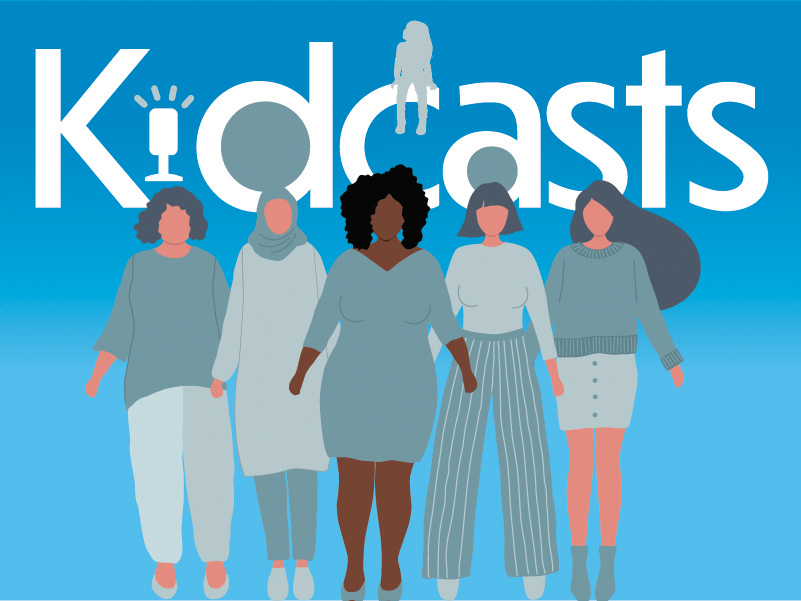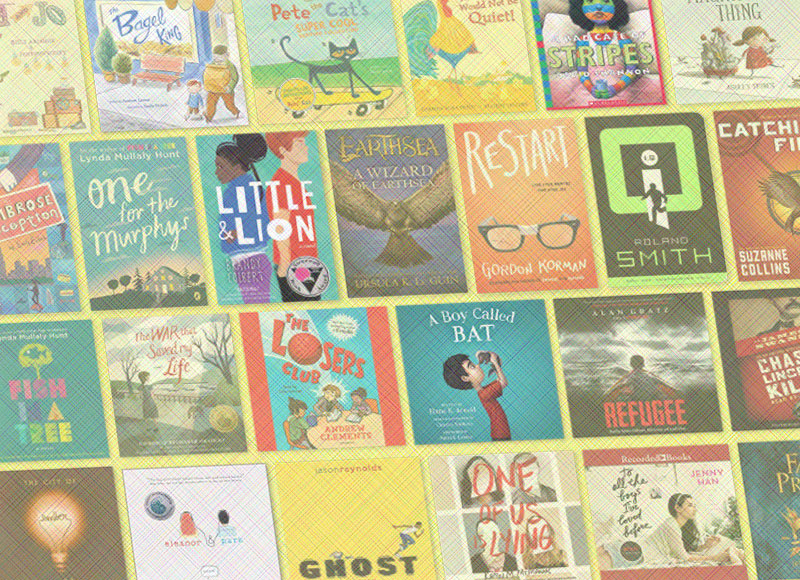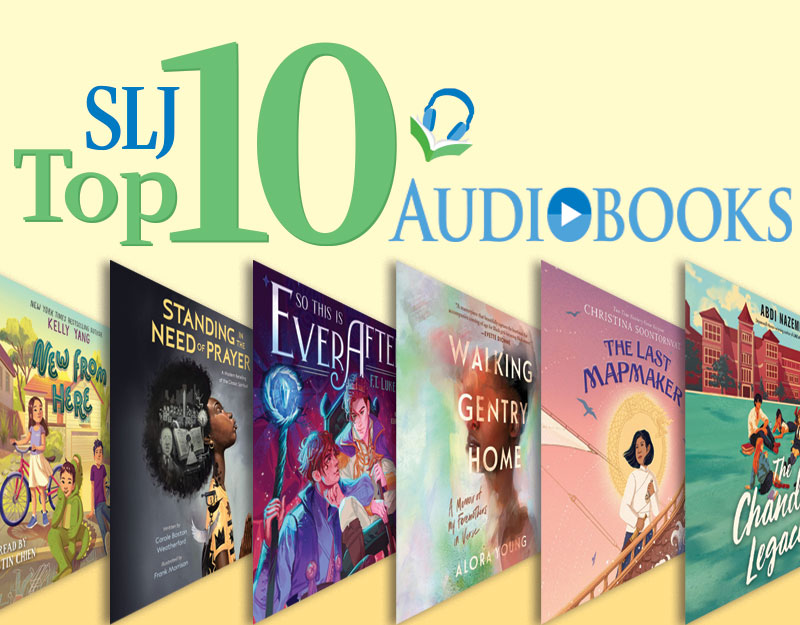Review of the Day: Honey for You, Honey for Me, compiled by Michael Rosen, ill. Chris Riddell

Honey for You, Honey for Me: A First Book of Nursery Rhymes
Compiled by Michael Rosen
Illustrated by Chris Riddell
Candlewick Press
$19.99
ISBN: 978-1-5362-1273-0
Ages 0-3
On shelves now
On the one hand I want to ask why more illustrators don’t publish collections of nursery rhymes, and on the other hand I think I may understand completely. If I were to hazard a guess, I’d say that there might be oodles of artists out there just itching to put their own spin on “Doctor Gloucester” (as an example) but it’s the publishers that are the ones that must give the yea or nay. And nursery rhymes, for all their evident charms, aren’t pulling in mad bank. Once they’ve established themselves they’re pretty set for life, of course (Tomie dePaola’s Mother Goose has been continually in print since 1985 and continues to sell at a prodigious rate, even as we speak). It’s that initial push that’s tricky. To get a new collection of nursery rhymes even published at all, you would have to have a strong foothold in a related field. A field like, say, children’s poetry. Now Michael Rosen has been a great many things for a great many people. I think back to good old We’re Going on a Bear Hunt for example. Then too, he’s a former British Children’s Laureate, which isn’t too shabby. Were you to smoosh him together with another British Children’s Laureate (like, say, just off the top of my head, Chris Riddell) then convince some nice UK publisher like Walker Books to take a risk on some classic nursery rhymes, it might come across as an easier sell. Particularly if that specific duo had already published a book or two of original poems for kids in the recent past. Honey for You, Honey for Me isn’t going to set any records in sales, but if you are looking for a book chock full of nursery rhymes, both familiar and un, you really can’t go wrong with what Rosen and Riddell have just cooked up.
When my own children were quite small I found myself plowing through a variety of different libraries’ children’s rooms in search of nursery rhyme collections. What I quickly learned was that I could have my pick of an interesting array of titles. On the older side, you had the aforementioned Tomie dePaola and The Arnold Lobel Book of Mother Goose (also sometimes known as “The Random House Book of Mother Goose”). On the other, there have been newer collections with a wider lens like Patricia McKissack and Brian Pinkney’s, Let’s Clap, Jump, Sing & Shout; Dance, Spin & Turn It Out!: Games, Songs & Stories from an African American Childhood, or Over the Hills and Far Away: A Treasury of Nursery Rhymes collected by Elizabeth Hammill. Read enough of these books and you get to recognizing all the different nursery rhyme variations. Plus, I could never get enough of seeing my very small children bouncing on my lap to the rhythms. There’s a reason these rhymes have survived as long as they have, after all. You can almost see the little synapses in kids’ heads connecting as you sing the lines of “The north wind doth blow” and such.

After reading this book, I tooled about online, trying to see if Michael Rosen spoke in any interviews on his thought process behind selecting one rhyme over another. In his introduction he mentions that when he visits schools he likes to keep an ear out for the rhymes kids tell one another. That kind of oral reporting caused me to remember Iona Opie and Peter Opie’s I Saw Esau: The Schoolchild’s Pocket Book, illustrated by Maurice Sendak (and which I made the grave mistake once of reading to my small child). The Opies were British folklorists that collected the same rhymes in the same manner as Rosen. Unlike the Opies, however, Rosen’s selections are consistently on par with the usual nursery rhyme collections, though I was pleased to locate some of the “intriguing gems” he alludes to in his intro, and that he feels have been “neglected”. Of course, as an American it’s difficult for me to determine if “Hanna Manna Mona Mike” is forgotten or merely British.
Not that any of this would work half as well without the right artist pairing. Chris Riddell has been a rather fascinating fellow to watch over the years. That he has so fully embraced Rosen’s poetry collections for the very young is downright charming. I love that he isn’t afraid to change audiences when the need arises. Riddell can do everything from political cartoons to out and out horror, but when called upon to do so he does wonderful work for the very young. This collection clocks in at an impressive 12” X 11” and Riddell makes use of every inch of that space. One would think that the sheer size would intimidate a child, but under his hand it actually feels cozy. “Rain on the green grass, / Rain on the tree, / Rain on the housetop, / But not on ME” is pretty snug already, but the image of a cozy little bear tucked into bed, looking out a window at the pouring rain is nothing but a delight. Interestingly, Riddell also eschews bloodshed. Let’s just say that usually in “Jerry Hall” the rhyme doesn’t always end well for old Jerry. And unlike some other artists (who shall remain nameless) he does a good job of giving his cast of children a range of ethnicities.
ADVERTISEMENT
ADVERTISEMENT

Honey for You, Honey for Me is going to be slotted into the “gift book” section of a lot of bookstores, I can already tell. It’s the kind of large, impressive book that sort of ups the ante when people want to wow new parents with a particularly lovely gift. I approve of this. There are a lot of beautiful books for children out there with large dimensions, but so few of them are actually appropriate for kids at very young ages. The nice thing about this book is that when it is given at baby showers or christenings or what have you, it’ll be ready to go the minute that little baby has eyes to see and ears to hear. Let’s just hope that parents don’t feel intimidated by it. It seems strange thinking that we might have to sell adults on the wonders of nursery rhymes, but too often that is the case. I’ll just address them directly myself here. HEY! PARENTS! Pick up that copy of Honey for You, Honey for Me and stop leaving it on the shelf to get dusty. Open it up, settle your child on your lap, and find the right rhythms. It’ll be rough at first but with time and practice, you’ll soon be a nursery rhyme reading pro. Just be warned that this book is a bit of a gateway drug. You’ll only have yourself to blame if it leads to finding other nursery rhyme collections as well. Don’t say I didn’t warn you.
On shelves now.
Source: Final copy sent from publisher for review.
Videos:
Might as well listen to the man himself doing some of these poems justice, eh?
Filed under: Best Books, Best Books of 2021, Reviews, Reviews 2021
About Betsy Bird
Betsy Bird is currently the Collection Development Manager of the Evanston Public Library system and a former Materials Specialist for New York Public Library. She has served on Newbery, written for Horn Book, and has done other lovely little things that she'd love to tell you about but that she's sure you'd find more interesting to hear of in person. Her opinions are her own and do not reflect those of EPL, SLJ, or any of the other acronyms you might be able to name. Follow her on Twitter: @fuseeight.
ADVERTISEMENT
ADVERTISEMENT
SLJ Blog Network
2024 Books from Coretta Scott King Winners
Monkey King and the World of Myths: The Monster and the Maze | Review
Parsing Religion in Public Schools
Book Review: Keeping Pace by Laurie Morrison
ADVERTISEMENT







